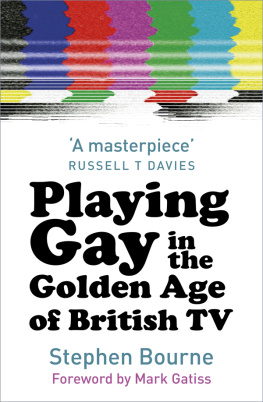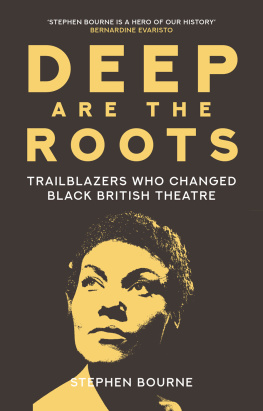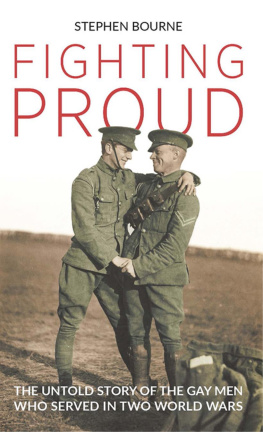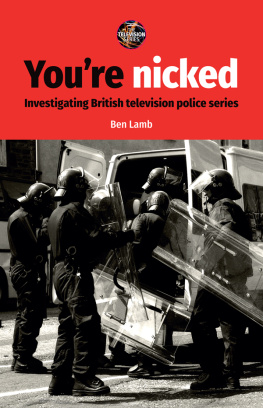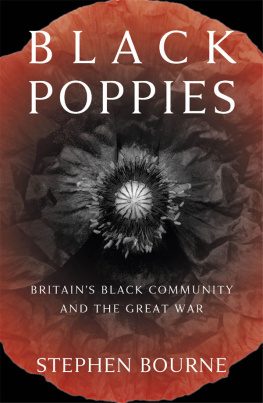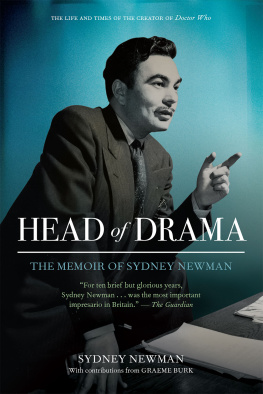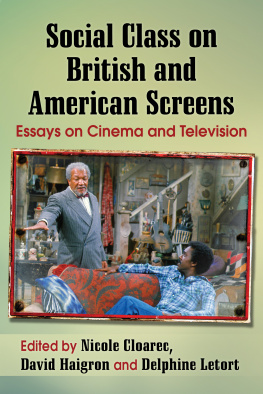Contents
Guide


This book is dedicated to
Drew Griffiths (194784)
Cover illustration: A Luna Blue / Alamy Stock Photo
First published 2019
The History Press
97 St Georges Place, Cheltenham,
Gloucestershire, GL50 3QB
www.thehistorypress.co.uk
Stephen Bourne, 2019
The right of Stephen Bourne to be identified as the Author of this work has been asserted in accordance with the Copyright, Designs and Patents Act 1988.
All rights reserved. No part of this book may be reprinted or reproduced or utilised in any form or by any electronic, mechanical or other means, now known or hereafter invented, including photocopying and recording, or in any information storage or retrieval system, without the permission in writing from the Publishers.
British Library Cataloguing in Publication Data.
A catalogue record for this book is available from the British Library.
ISBN 978 0 7509 9363 0
Typesetting and origination by The History Press
Printed and bound in Great Britain by TJ International Ltd.
eBook converted by Geethik Technologies

Contents
Foreword by Mark Gatiss
Peter Wyngarde popped my cherry. Not literally, of course, but it was the wildly popular Jason King actors startling arrest in a Gloucester bus station in 1975 that set things off. It gave a name to the strange, fuzzy feeling Id been having for years. The feeling I had when I saw Stuart Damon in The Champions and the lad in Follyfoot. Or the Tomorrow People episode in which the impossibly beautiful Jason Kemp appeared as a fey outsider, bullied by his schoolmates for being different, who was then revealed to be an all-powerful alien in eyeliner. I didnt know what this feeling was but somehow I knew it was secret and forbidden. I was gay.
When I was growing up, TV was my best friend. I can view the whole of my early life through its prism. A neon tapestry of memories and influences standing stones and Ogrons and witchcraft and saggy old cloth cats and dystopian futures full of plague and societal breakdown. As I reached adolescence, something else began to make its presence felt. Just as the toy section of the Brian Mills catalogue began to hold less interest than the bit with mens underwear, certain less whimsical aspects of TV began to dominate my imagination. Id comb the TV schedules for fragments of anything even remotely poofy. And fragments there were, a sort of 625-line version of real life a stolen glance here, a delicate brush of the fingertips there appearing in various plays for today, Rock Follies, foreign films on BBC2, Pendas Fen (the ultimate 1970s TV experience folk horror crossed with homosexuality) and Kids with Jason Kemp (again!) as the tart with the golden heart in the memorable episode Michael and Liam.
And then, of course, there was Jason King. As the bestselling author-cum-ladykiller agent, Peter Wyngarde represented the height of early 1970s masculinity, though its now hard to fathom with his dandified persona, handlebar tache and turned up shirt cuffs. Little did any of us know that Wyngarde was known in the profession as Petunia Winegum and had had a long and tempestuous relationship with fellow heartthrob Alan Bates. But as already stated, his status as housewives favourite came crashing to earth in those bus station lavs. I have a vivid memory of this. The papers were full of scandalised headlines and I asked my mam what it was all about. With the deliberateness of speaking unfamiliar words, she said, Hes been caught importuning for men, pet. Im not sure to this day if she really knew what that meant. Whats clear from Stephen Bournes terrific, fascinating and compulsively readable book is that Wyngarde had flirted with gay roles almost hiding in plain sight for years. He had appeared in Patrick Hamiltons Rope and then in the intriguing South in 1959, as the tormented Jan, his performance being much praised except by two old ladies who attacked him on a bus: Dirty perv. You should be ashamed of showing such filth on the telly! This was followed by his performance as Roger Casement in On Trial, produced by Peter Wildeblood whod been imprisoned for his homosexuality and who famously chronicled his experiences in Against the Law.
What Bourne reveals is that these moments, these queer presences, have been with us pretty much since the beginning of TV. From Douglas Byng, the first drag act to appear on television (Im one of the queens of England!), to live productions of Rope (adapted five times between 1939 and 1957). Inevitably, most of these appearances conformed to stereotype: unhappy, lonely men who often met tragic ends. Though as Bourne points out, performances such as Aubrey Morriss make-up man in 1962s Afternoon of a Nymph transcended the clich. Id like to be in your shoes, he says to his actress friend. Literally or figuratively? Many of these early plays have been wiped, lost forever in the ether, but Stephen Bourne brings them vividly back to life, relating the compelling story of how these fragments of lives, personalities and politics eventually become a flood. Camp family favourites like Larry Grayson, John Inman and Melvyn Hayes (great care was taken to assure viewers that these men werent actually homosexual, merely flamboyant) were joined by the more brazen presence of John Hurt in The Naked Civil Servant, the loving gay couple Rob and Michael in ITVs Agony and Nigel Havers in the well-remembered Coming Out. Bourne highlights lost gems too, such as the charmingly subversive The Obelisk and Drew Griffiths and Noel Greigs Only Connect.
Times were changing and we saw the presence of gay men filtering into soaps and other mainstream drama, culminating in EastEnders gay couple Colin and Barry. Though criticised as more grey than gay, its easy to forget the hostile climate in which these first, faltering steps were made.
The battles are not all won, but what Playing Gay demonstrates in hugely entertaining and fascinating detail is how far British broadcasting has come and come out into the sunlight.
Foreword by Russell T Davies
Playing Gay is a masterpiece, a meticulous, dazzling, witty and wise history of gay men on television. The range is astonishing it covers everything from monoliths like The Naked Civil Servant down to every blackmailed husband or secret lover ever to appear on guest spots in Z Cars or Upstairs, Downstairs. And this is an immensely kind piece of work, resurrecting lost classics and forgotten heroes. The chapter on writer Drew Griffiths is achingly sad and compassionate, and restores his career to a much-deserved glory. And this isnt merely about drama; theres actual drama within the pages, as executives rage, audiences quiver and stars leap into the fray. Peter Wyngarde emerges as a true champion and theres a hilarious meeting between Douglas Byng and Quentin Crisp which deserves to become a TV play in its own right.

